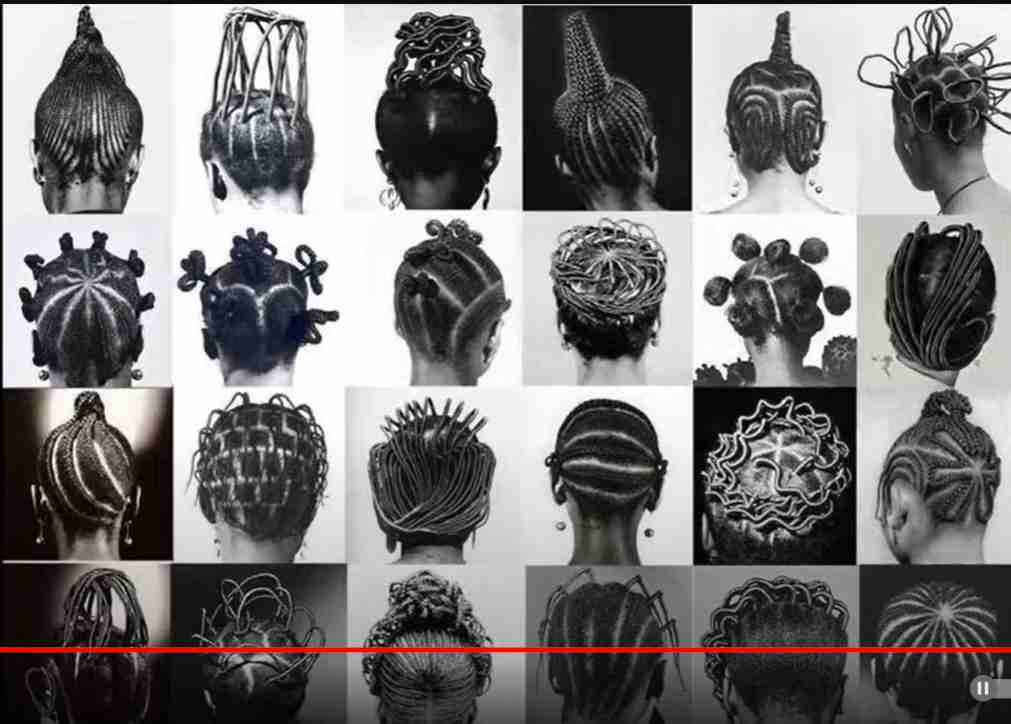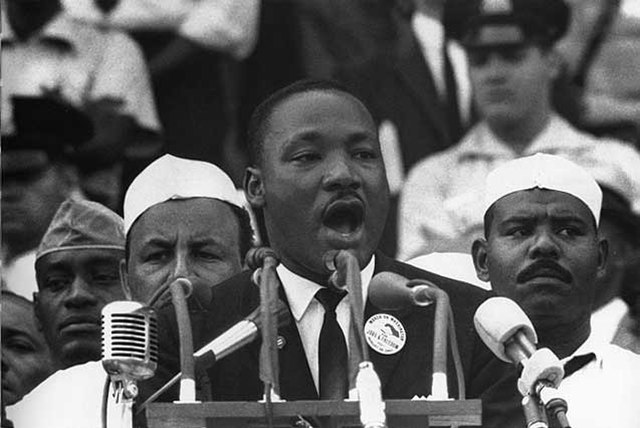For centuries, African hair has had distinctive roles in the world’s cultures. And black people have considered it an identifier, a symbol of solidarity, and sometimes a political statement. But did you know, historically, most braiding variations involve weaving hair to form communicable patterns?
In many parts of the world, black women have been pressured to change their hair texture to fit societal standards since slavery. A phenomenon that has caused more hair damage to black hair than protection.
Become an insider. Subscribe to our newsletter for more top trending stories like this!
Despite its identifiable symbolism for black people, black hair has been a symbol of oppression even after slavery. In this article, we take a look at eleven incredible facts to know about African hair history.
People Also Read: Black Travel: Why People of African Heritage Should Travel
11 Facts About the History of African Hair
African Tribal Identification
Before colonialism and Western oppression, African hairstyles were used to differentiate and identify people based on their:
- Tribe
- Family ties
- Occupation
- Marital status
- Societal status
This happened mostly among women in West Africa. Beyond an African identity, African hair sets us apart as a race, and its delicate nature requires deliberate and specific attention.
African Hair
Research in the mid-nineteenth century by American scientists proposed diverse types of humankind. The least superior types of mankind were ranked on the black race in this study. This would go on to justify African civilization by the Western world.
The result was harsh policies with the help of local leaders that made Africans inferior in their identity, such as hair care.
Many years later, the average African woman is still insecure about wearing her natural hair to work or other professional settings. This is true, despite a resurgence of embracing natural hair in the black community in Africa and across the world.
Also, a study by the Perception Institute in the U.S. found that black hair is seen as unprofessional and less unattractive, even among black women.
Black Slaves Covered Their Hair
Black women wore their hairstyles even in slavery until it was perceived as an act of defiance and to lure men.
By 1786 during the peak of the slave trade and discrimination of black hair, Louisiana passed the Tignon Laws to limit how black women style their hair. The law required black women to cover their hair with scarves.
This was the beginning of the oppression of black hair. After the direction, black women adorned their hair scarves with beads and colors to look more colorful.
Invention of Marcel Grateau’s Hot Comb
By the 1880s, there were hair products for white women. Meanwhile, black women continue to experience scalp and kinky hair issues. At this time, Marcel Grateau was marketing the hot comb to white women to help them straighten their hair like ancient Egyptian women.
However, black women took over the tool, as it proved to be a wrong tool for white women’s hair. Although records are uncertain if Marcel invented the tool, it’s unclear who did.
Today, black women still use hot combs to straighten their hair for easier combing and to reduce stigma. It’s one way black women do hair styling on different hair type.
Birth of Black Hair Products
In 1902, Annie Turnbo Malone founded the Poro College Company to create black hair products and teach the black community how to care for African hair. Madam CJ Walker was one of the first black women to sell hair products. These products helped immigrants braiders and stylist in salon.
Ms Walker would later produce her hair product: Walker’s Wonderful Hair Grower. The women founders made fortunes, giving back to the black community through philanthropic work.
Invention of Hair Relaxer
The incredible facts about black hair history also involved Garrett A. Morgan, a black businessman who accidentally invented the hair relaxer. Morgan was looking for a solution for sewing machines to sew faster.
After his discovery, he registered his company, the G.A. Morgan Hair Refining Company, where he sold hair relaxers for black women who wanted to straighten their hair.
Johnson’s Ultra Sheen was founded almost five decades later.
Rastafarian Movement
In 1936 when the crowned emperor of Ethiopia, Haile Selassie, was forced into exile, his followers, specifically the Guerrilla Warriors, refused to cut their hair. This act was a protest to force the release of their leader.
Become an insider. Subscribe to our newsletter for more top trending stories like this!
With time, the growing afros matted to form long locs. The Rastafarian warriors were dreaded because of their hair. This birthed the name dreadlocks.
Many years later, Bob Marley introduced dreadlocks to pop culture.
Resurgence of African Hairstyles
During the 1960s, there was the Black Power Movement to reclaim black dignity and equality. The conversation includes the rebirth of black hairstyles as it were before slavery. Many black people resorted to wearing afros outside their homes, creating an afro-centric identity of who they were.
Two years later, Cicely Tyson wore traditional cornrows in a popular TV drama, the first step to normalizing African braids in America. This act influenced women like Lauryn Hill, who wore her locs for Time’s Magazine in 1990, and Angela Davis in her iconic afro.
Furthermore, ‘School Daze,‘ a film by Spike Lee released in 1988, touched on many important issues in the Black community. There was also information about colorism and how different ways Black people style their hair are stigmatized at different levels.
Many viewers were introduced to the subject for the first time through this movie’s honesty about hair stigma.
Box Braids Became Popular in America
Between the 1990s and 2000s, box braids gained popularity due to black sitcoms like:
- The Fresh Prince of Bel-Air
- Moesha
- Girlfriends
- and Sister, Sister.
In these black shows, the cast wore black hairstyles like micro braids and twists. Then, Janet Jackson released Poetic Justice, wearing box braids in the movie. This influenced black women to style their hair in similar braids even today.
One of such great productions is Jaja’s African Hair Braiding by playwright Jocelyn Bioh. It’s a story about a Harlem based salon owned by Jaja(Somi Kakoma) and her American raised girl Marie(Dominique Thorne). Its produced by Broadway productions. The story shows African women like Ndidi(Maechi Aharanwa), Miriam(Brittany Adebumola) and Michelle(Kalyne Coleman) are seen discussing topics seen as taboo in African culture.
The production, directed by Whitney White, did well in theater and was appreciated by people in diaspora. Other people in the cast are Rachel Christopher, Zenzi Williams, and Lakisha May.
The Birth of Black Content Creators
With the proliferation of social media between 2010 and till date, we have seen black content creators creating videos on YouTube about black hair care. From natural hair care to braids to locs, the information on the internet today on black hair is endless.
If you’re looking for braiding ideas or products to use for your kinky hair, social media is the best channel to find solutions. You can also find notable blogs on black hair care.
Grooming Policies
Until civilization, Africans braided hair freely without prejudice, discrimination, or stereotypes. While the West has subtle rules for black women to conform to in terms of hair care, the situation in Africa is not different.
Students, especially in government schools, are not allowed to wear their natural hair. You are given the choice to either trim your hair or go to a private school. The situation is more strict in Senior High Schools in Ghana.
Moreover, in August 2016, students at Pretoria High School in South Africa protested against harsh regulations to straighten their hair. The situation is not different in Nigeria.
People Also Read: 7 Best Spas in Kingston Jamaica to Explore
African hair is beautiful and has a fascinating history. While many black people, especially women have embraced their unique natural hair, a lot needs to be done the preserve black hair culture.
Nearly 80% of consumers visit directories with reviews to find a local business. List your business for free in our exclusive Spotcovery Black-Owned Business Directory.
Spotcovery offers unique and fresh daily content on Black culture, lifestyle, and experiences. We talk about everything black, black people, black-owned and black-owned businesses. We also deliver authentic and relevant content that will inform, inspire, and empower you! The future of black media is critical to today’s black experience! Our primary audience includes African Americans, Africans, Afro-Caribbean, and people of African heritage. Black culture is for the culture!
Become an insider. Subscribe to our newsletter for more top trending stories like this!





